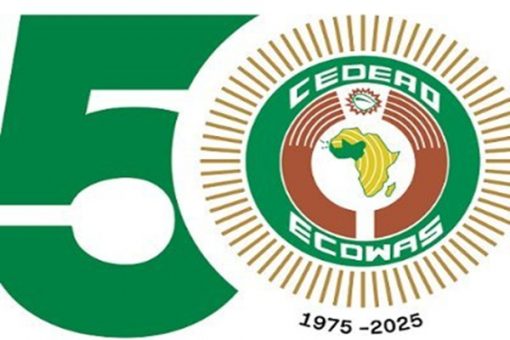The Economic Community of West African States (ECOWAS) has officially launched its 50th anniversary celebrations in Lagos, Nigeria, marking a major milestone in regional cooperation and integration.
Held under the theme “Stronger Together for a Brighter Future,” the celebrations highlight ECOWAS’ renewed commitment to fostering unity, peace, and prosperity across West Africa.
A Vision for the Future
As part of the commemorative events, the ECOWAS Commission unveiled its long-term strategic framework—Vision 2050—which aims to transition the organization from an “ECOWAS of States” to an “ECOWAS of the People.” The vision promotes citizen participation, regional cohesion, and inclusive development for the region’s estimated 300 million inhabitants.
Historical Roots
Founded on May 28, 1975, ECOWAS was established when the Treaty of Lagos was signed by the Heads of State and Government of 15 West African countries, including Nigeria, Ghana, Senegal, and Côte d’Ivoire. The treaty, signed at the Nigerian Institute of International Affairs (NIIA) on Kofo Abayomi Street, Victoria Island, laid the foundation for economic integration in the region.
While Mauritania, the only Arabic-speaking member, withdrew in 2000, it rejoined as an associate member in 2017. Cabo Verde became a full member in 1977. Recently, Burkina Faso, Mali, and Niger withdrew from the bloc, reducing current membership to 12 states.
Commemorative Events
Wednesday’s events began with a symbolic re-enactment of the 1975 treaty signing at the NIIA, paying tribute to ECOWAS’ founding vision. This was followed by the main anniversary ceremony at Eko Hotel and Suites, featuring dignitaries, regional leaders, and partner organizations reflecting on five decades of achievement and future challenges.
The celebration will conclude with a high-level roundtable discussion, titled: “ECOWAS, an African Model @50: Resilience and Future Prospects,” featuring former leaders and stakeholders discussing the way forward.
ECOWAS in Perspective
ECOWAS was conceived as a platform for collective self-sufficiency and economic cooperation, aiming to establish a single regional trading bloc. The region boasts a combined GDP of approximately $734.8 billion, and integration efforts span industries such as transport, telecommunications, energy, agriculture, and finance.
In 2007, the ECOWAS Secretariat was restructured into a Commission to enhance its administrative efficiency. The Commission is currently led by a President, supported by a Vice President, five Commissioners, and an Auditor-General.
The organization is primarily funded through a 0.5% community levy imposed on imports from non-ECOWAS countries.
Moving Forward
To accelerate integration, ECOWAS is implementing strategic initiatives aimed at dismantling barriers to cooperation and fostering sustainable development. As the bloc marks its golden jubilee, Vision 2050 represents a renewed commitment to building a resilient, unified, and prosperous West Africa.

